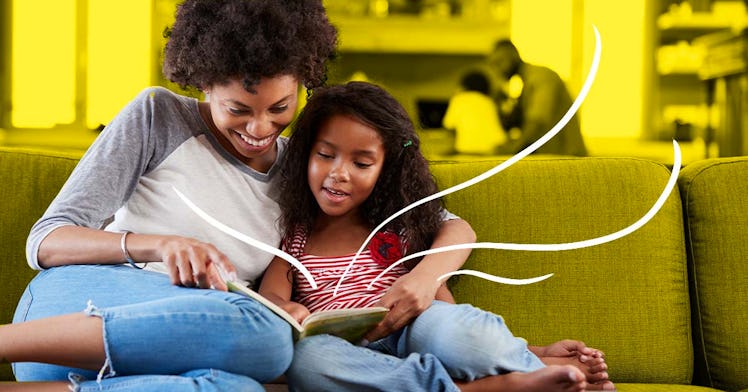When Do Kids Learn to Read and How Can Parents Help?
Just because kids can recite the alphabet doesn't mean they're ready to read.

Knowing how to read is so crucial to modern success that parents are pushing children to develop reading skills even before preschool. But just because kids can start learning to recognize the alphabet shortly after they begin babbling doesn’t necessarily make it a worthwhile activity. It might be better for parents to consider the age when kids learn to read and focus their efforts on building a love of reading that will last a lifetime.
When Can Kids Physically Start Reading?
Reading is not only a mental practice, it’s a physical one, too. Anyone who’s had “tired eyes” after a good book session can speak to that. So parents would do well to keep in mind a child’s ability to move and coordinate their eyes for successful reading.
“Prior to 7-and-a-half years old for girls and 8 years old for boys, the brain hasn’t fully developed control over the muscles necessary for reading,” explains Dr. Juanita Collier, behavioral optometrist and founder of 4D Vision Gym.
So until that age children may struggle with their ability to fixate on the letters, move their eyes from word to word, or make the return sweep to get to the next line of text. When those physical skills are underdeveloped, children will create ways to compensate. “We find that learning to read earlier, often results in solidifying the poorly developed eye muscle coordination,” Collier says. “The child further trains their compensation instead of the physical development of those skills.”
That said, Collier notes that there are ways children can develop the ocular strength and agility required for reading. Activities like playing ball sports, riding a bike and simply going outside can help build crucial reading abilities like brain-body coordination and depth perception.
When Do Kids Learn to Read?
It’s important to make a distinction between being able to phonetically sound out words and actual reading. One requires stringing sounds together while the other requires comprehension — some understanding of what the words represent. For most children, this ability to comprehend usually develops between 6 and 9-year-old, around first grade.
In many countries and cultures, reading instruction does not begin until 8 or 9 years of age, and children learn in a matter of months, says Niagara University Dean and Professor of Education Dr. Chandra J. Foote. She notes that parents in the United States seem to be far more anxious about their children learning to read. “Parents feel pressured to purchase apps and programs to ensure that their child does not fall behind.”
But Foote notes that wanting to read is more important than being able to read at an early age. Still, she says, parents can encourage that love of reading by having books around and reading aloud to them. Not only does it help children orient to books, explains Foote, “they also develop an emotional bond to reading by having this special time together with their parents.”
How Kids Learn to Read
Children learn to read best through a combination of phonemic and phonological awareness, according to teacher, educational consultant, and curriculum developer Kristie Shelley. What that means is that children have an understanding that certain letters make certain sounds and when those sounds are placed together they make words.
“Many parents believe that if their little one learns the ABCs and they read to them it will be enough, but unfortunately that is not the case,” Shelley says. ”Our national statistics in reading show this. Close to 65% of 4th graders in the U.S. do not read a grade level.”
It’s not just about knowing the letter “a” is an “a.” Children also need to know that the letter makes a sound and that sound changes in the context of other letter sounds. Rhyming helps kids learn this, but so does listening to parents phonetically sound out words.
Most importantly, If parents keep the process of reading fun while providing strong physical and phonetic foundations, most children will start reading by 3rd grade. But not only that, they’ll love reading too.
This article was originally published on